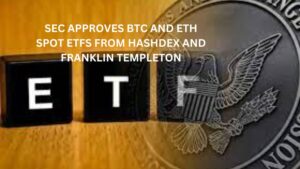Key Takeaways:
- Initial court clearance was given to Voyager Digital, a bankrupt cryptocurrency lender, for its plan to sell its assets to Binance.US.
- The decision was made in the midst of a national security investigation into Binance that Voyager is trying to accelerate.
Voyager Digital, a bankrupt cryptocurrency lender, has gained preliminary court clearance for its plan to sell $1.02 billion worth of assets to Binance.US. The permission comes as Binance is under investigation for national security reasons. Voyager is attempting to accelerate the US.
According to a Bloomberg report, Judge Michael Wiles of the Southern District of New York Bankruptcy Court permitted Voyager to execute the asset acquisition agreement and obtain creditor clearance on January 10. However, the deal won’t be finalized until after another court hearing.
It comes at a time when Voyager wants to hasten the review of its request to sell assets to Binance.US, which may cause the deal to be delayed or blocked.
Joshua Sussberg, a lawyer representing Voyager, stated at the court hearing that the business has been responding to inquiries from the Committee on Foreign Investment in the United States (CFIUS). Additionally, he pledged to alleviate any worries CFIUS might have that would cause it to reject the transaction. As Sussberg said:
“We are coordinating with Binance and their attorneys to not only deal with that inquiry, but to voluntarily submit an application to move this process along,”
CFIUS is an interagency organization that assesses foreign investments in or acquisitions of American businesses for potential threats to national security.
If CFIUS finds that the transaction raises legitimate national security concerns, it may prohibit or reverse the transaction or order the parties to make changes to alleviate the concerns. On December 30, CFIUS notified the court that “one or more transactions anticipated” by Voyager may be the subject of a review, which might lead to delays or blockages.
The U.S. attorney’s office is looking into Binance‘s worldwide business over money laundering claims, but the company’s CEO, Changpeng Zhao, has said that Binance.US is a “totally autonomous entity” with headquarters in California. Zhao is a Chinese-born citizen of Canada, and CFIUS is empowered to examine any transactions that potentially give a foreign person equity interest in or control over a U.S. company.
The deal was supported in its current form by the Voyager Official Committee of Unsecured Creditors, a group of creditors without security interests in Voyager, who claimed that it would result in more significant recoveries for creditors than if Voyager independently sold its holdings, as would happen if CFIUS rejects the deal.
According to Voyager, the objections fail to advance any factual or legal foundation for their assertions, and the deal maximizes the interests of its creditors, it was claimed. On December 19, Voyager declared that it had endorsed Binance. Following a $1.4 billion agreement with FTX, the US offered to purchase its assets for $1.022 billion. However, following the collapse of the cryptocurrency exchange, the US failed.
When Voyager filed for bankruptcy in November due to a surge in customer withdrawals and fraud charges that resulted in the CEO Sam Bankman-Fried‘s arrest, its first attempt to transfer its assets to FTX Trading was unsuccessful.






